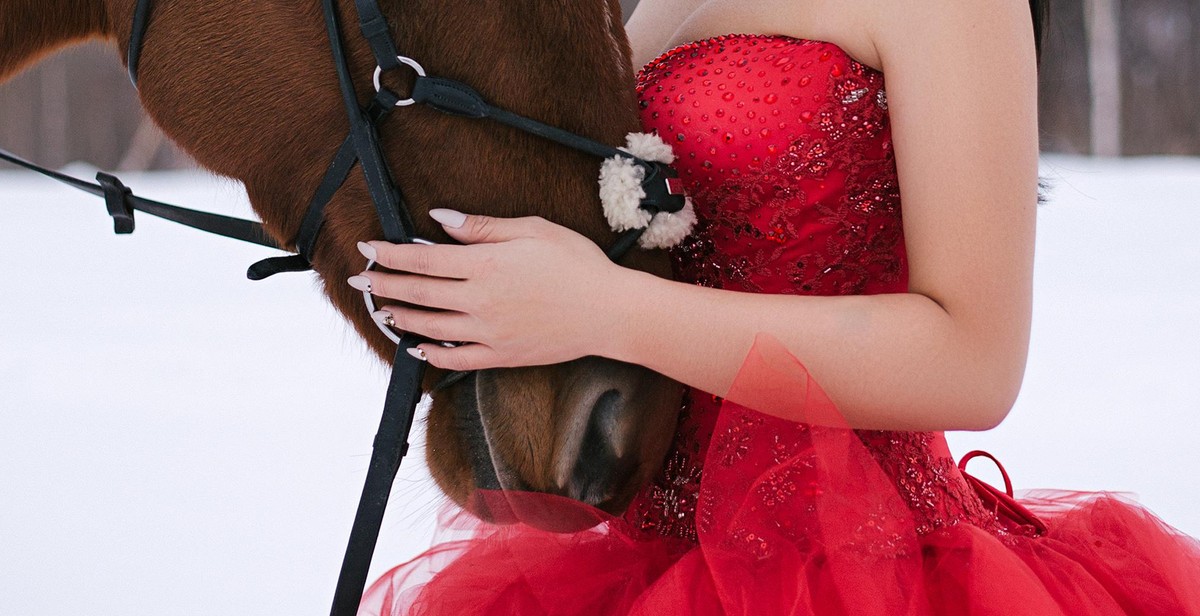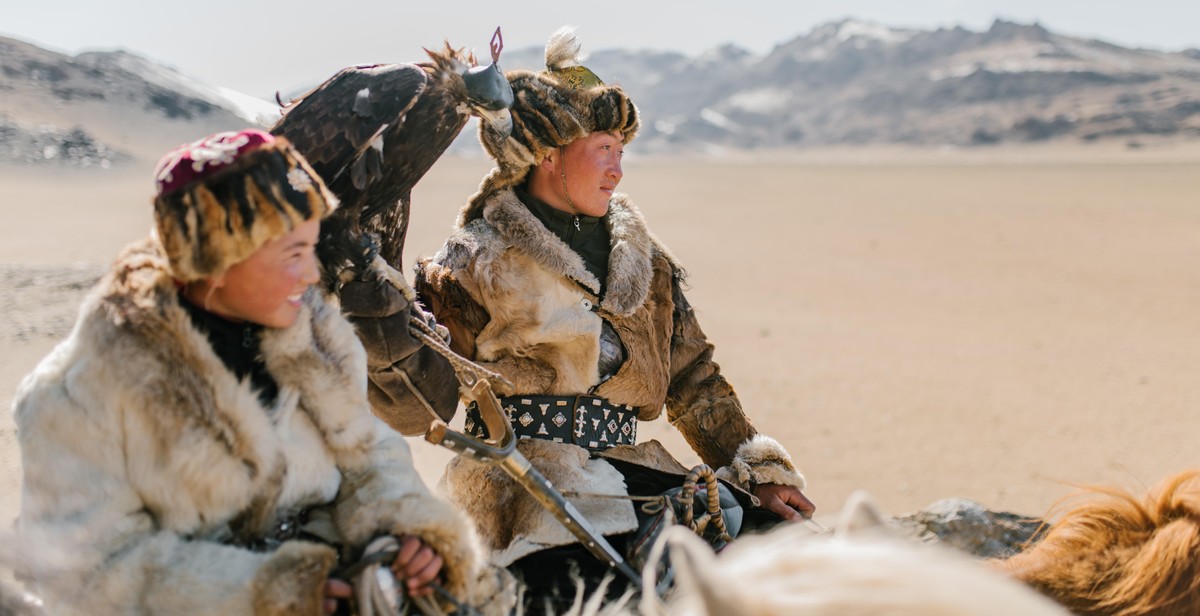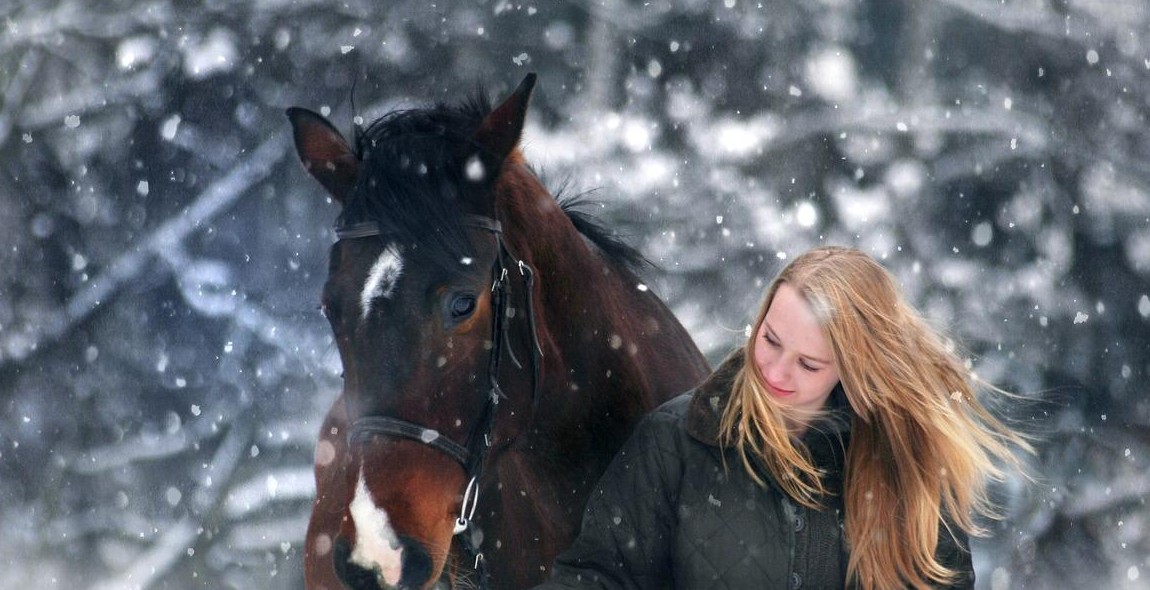How to Care for Horses in Winter: Tips for Keeping Your Horses Healthy and Comfortable in Cold Weather
As a professional horse owner and trainer, I understand the importance of proper care and attention during the winter months. Cold weather can be tough on horses and it’s essential to take the necessary steps to keep them healthy and comfortable. In this article, I will share my personal experiences and tips for caring for horses in winter.
Why Winter Care is Important for Horses
Horses are naturally adapted to colder temperatures but they still require proper care during winter months. Extreme cold weather can cause dehydration, weight loss, and other health issues. Additionally, horses may require additional feed and supplements to maintain their weight and energy levels. Proper winter care can help prevent these issues and keep your horses healthy and comfortable.
Winter Care Tips for Horses
Here are some tips for caring for your horses during the winter months:
- Provide access to fresh water at all times
- Feed high-quality hay and consider supplementing with grain or other feed
- Ensure adequate shelter from wind, rain, and snow
- Monitor weight and body condition regularly
- Keep horses active with regular exercise and turnout
- Check hooves and provide proper farrier care
Conclusion
Caring for horses during the winter months requires attention to detail and proper planning. By following these tips and prioritizing your horse’s health and comfort, you can ensure that your horses stay happy and healthy throughout the winter season.

Understanding Horse’s Winter Needs
As winter approaches, it is essential to understand the needs of horses during this season. Horses are intelligent animals that have adapted to living in cold weather conditions. However, they still require proper care to maintain their health and comfort during the winter months.
Horses’ Natural Adaptation to Cold Weather
Horses have a natural adaptation to cold weather, which includes growing a thicker coat. The thicker coat helps to insulate their body and keep them warm. Additionally, horses will naturally seek shelter from the wind and snow. They will also huddle together to share body heat.
It is important to note that horses’ adaptation to cold weather varies depending on their breed, age, and overall health. Some horses may require additional care during the winter months to maintain their health and comfort.
Factors Affecting Horses’ Tolerance to Cold Weather
Several factors can affect a horse’s tolerance to cold weather. These include:
- Body Condition: Horses that are underweight or have a low body condition score may struggle to maintain their body temperature during the winter months.
- Age: Older horses may have a harder time regulating their body temperature during the winter months.
- Breed: Certain breeds are better adapted to living in cold weather conditions, such as draft horses and ponies.
- Health: Horses with underlying health conditions may require additional care during the winter months to maintain their health and comfort.
- Activity Level: Horses that are more active may generate more body heat and require less additional care during the winter months.
Understanding the factors that affect a horse’s tolerance to cold weather is essential in providing proper care during the winter months. By taking these factors into consideration, you can ensure that your horse remains healthy and comfortable throughout the winter season.
| Factor | Effect on Tolerance to Cold Weather |
|---|---|
| Body Condition | Lowered tolerance |
| Age | Lowered tolerance for older horses |
| Breed | Higher tolerance for certain breeds |
| Health | Lowered tolerance for horses with underlying health conditions |
| Activity Level | Higher tolerance for more active horses |
Overall, understanding a horse’s natural adaptation to cold weather and the factors that affect their tolerance is crucial for providing proper care during the winter months. By taking these factors into consideration, you can ensure that your horse remains healthy and comfortable throughout the season.

Tips for Keeping Your Horses Warm and Healthy in Winter
Winter can be a challenging time for horse owners. The cold weather and snow can make it difficult to keep horses healthy and comfortable. However, with a little extra care and attention, you can help your horses thrive during the winter months. Here are some tips for keeping your horses warm and healthy in winter.
Provide Adequate Shelter
One of the most important things you can do to keep your horses healthy in winter is to provide them with adequate shelter. This can be a barn, a run-in shed, or even a windbreak. The shelter should protect your horses from the wind, rain, and snow. It should also be well-ventilated to prevent the buildup of moisture and ammonia.
Blanketing Horses
Blanketing horses is a controversial topic among horse owners. Some believe that horses are better off without blankets, while others believe that blankets are necessary to keep horses warm and dry. Ultimately, the decision to blanket your horse will depend on your horse’s individual needs and the weather conditions in your area. If you do decide to blanket your horse, make sure the blanket fits properly and is made of a breathable material.
Feeding Horses in Winter
Horses need more calories in winter to maintain their body temperature. Make sure your horses have access to high-quality hay or pasture. You may also need to supplement their diet with grain or other concentrates. Make sure your horses have access to fresh water at all times.
Watering Horses in Winter
Water is just as important in winter as it is in summer. Make sure your horses have access to fresh, unfrozen water at all times. You may need to invest in heated water buckets or a heated water trough to prevent the water from freezing.
Exercise and Turnout
Exercise and turnout are important for keeping horses healthy in winter. Horses that are kept in stalls all day are more prone to health problems such as colic and respiratory issues. Make sure your horses have access to a dry, safe turnout area. You may need to limit turnout time in icy or snowy conditions to prevent slips and falls.
| Tips for Keeping Your Horses Warm and Healthy in Winter |
|---|
| Provide Adequate Shelter |
| Blanketing Horses |
| Feeding Horses in Winter |
| Watering Horses in Winter |
| Exercise and Turnout |
By following these tips, you can help your horses stay warm, healthy, and comfortable during the winter months.
Health Concerns to Watch Out For
Winter can be a challenging time for horses, and it’s important to keep an eye out for certain health concerns that can arise in cold weather. Here are some common issues to watch out for:
Respiratory Issues
Cold weather can exacerbate respiratory issues in horses, particularly if they spend a lot of time in a barn with poor ventilation. Dust and mold can accumulate in hay and bedding, which can irritate a horse’s lungs and lead to respiratory problems. Signs of respiratory issues include coughing, nasal discharge, and labored breathing.
To prevent respiratory issues, make sure your horse’s living area is well-ventilated and clean. Use dust-free bedding and hay, and avoid keeping horses in enclosed spaces for long periods of time. If your horse does develop respiratory issues, consult with your veterinarian to determine the best course of treatment.
Dehydration
In the winter, horses may drink less water than they do in warmer weather, which can lead to dehydration. This is especially true if horses are eating dry hay without access to fresh grass or other sources of moisture. Signs of dehydration include dry mucous membranes, dark urine, and a lack of energy.
To prevent dehydration, make sure your horse has access to fresh water at all times. You may need to break up ice in water buckets or provide a heated water source to prevent freezing. You can also soak your horse’s hay to increase its moisture content.
Colic
Colic is a common issue in horses during the winter months, and it can be caused by a variety of factors. Horses may be more prone to colic in the winter due to changes in their diet, decreased water intake, and decreased activity levels. Signs of colic include restlessness, pawing at the ground, and rolling.
To prevent colic, make sure your horse’s diet is consistent and includes plenty of fiber. Gradually introduce any changes to their diet, and monitor their water intake closely. Encourage your horse to stay active, even if it’s just through short periods of exercise or turnout.
| Health Concerns | Prevention Tips |
|---|---|
| Respiratory Issues | Ensure good ventilation and clean living areas |
| Dehydration | Provide access to fresh water at all times and increase moisture in hay |
| Colic | Maintain a consistent diet with plenty of fiber and encourage activity |

Conclusion
Winter can be a challenging season for horse owners, but with the right care and preparation, you can keep your horses healthy and comfortable throughout the colder months. By providing adequate shelter, feeding a balanced diet, and maintaining a regular exercise routine, you can help your horses stay in good condition and avoid common winter health problems.
Remember to regularly check your horses for signs of illness or injury, and seek veterinary care if necessary. Additionally, keep an eye on the weather forecast and be prepared to adjust your care routine as needed, such as providing additional bedding during particularly cold spells.
Overall, caring for horses in winter requires a combination of knowledge, experience, and attention to detail. By following the tips outlined in this article and staying vigilant about your horses’ well-being, you can help ensure that they stay healthy and happy all winter long.
| Key Takeaways: |
|
Caring for horses in winter may require extra effort, but it’s worth it to ensure your horses stay healthy and comfortable. By following the tips in this article and staying informed about best practices for winter horse care, you can help your horses thrive even in the coldest months of the year.
